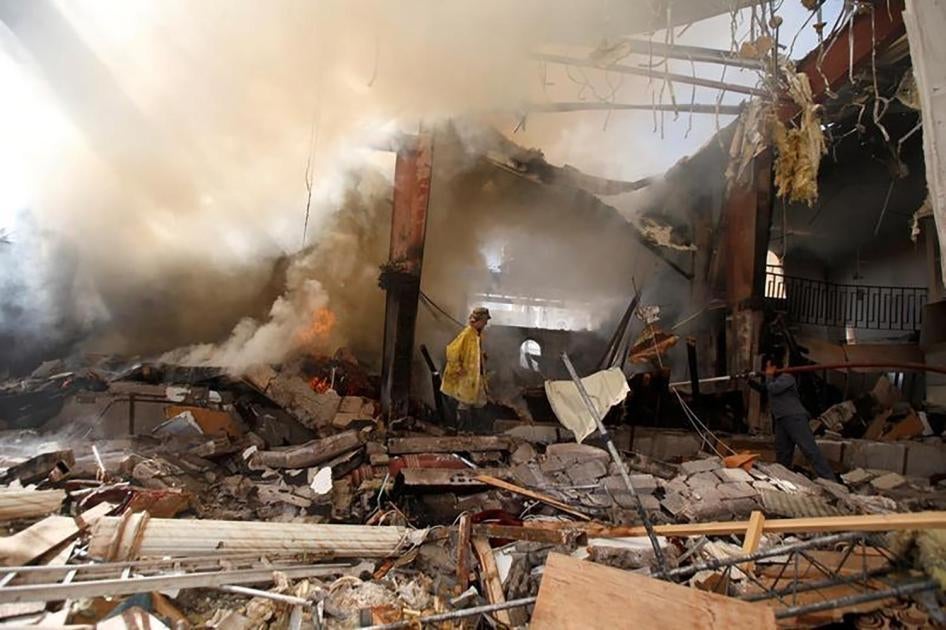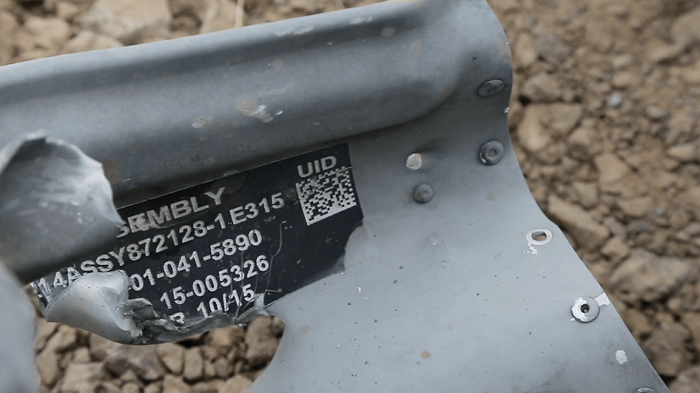Last October the Saudi Arabia-led coalition bombed a funeral hall in Yemen’s capital, Sanaa, killing and wounding hundreds of people. “The scene was catastrophic,” one survivor told me. “Beyond what I can explain to you or describe… There were burned bodies and dead bodies all over the hall.”
Soon after that unlawful bombing, the Obama administration suspended the sale of nearly $400 million in weapons to Saudi Arabia. It was a recognition, a long time in coming, that the coalition’s military campaign in Yemen had devastated the country, killed thousands of civilians, and brought it to the brink of famine.
After the funeral bombing, unlawful airstrikes continued, but the decision to suspend arms sales sent an important message to the Saudis. President Donald Trump, in his first trip abroad as president, is going to send an alternative, deeply troublesome message.
While in Riyadh this weekend, Trump reportedly plans to announce more than $100 billion in arms deals to Saudi Arabia – nearly as much as Barack Obama authorized during his eight years in office. The deals include Raytheon bombs, Lockheed Martin missile defense systems and BAE combat vehicles, and some of the weapons whose sales had been suspended.
The scars of unlawful airstrikes can be found across Yemen, where the Saudi-led coalition has carried out scores of attacks that hit homes, schools, markets, and hospitals since March 2015, when it began its military campaign against the Houthi armed group and forces loyal to the former longtime president Ali Abdullah Saleh. Human Rights Watch has documented 81 apparently unlawful coalition attacks over the last two years, many possible war crimes. In almost two dozen of these cases, including the attack on the funeral hall, we were able to identify the US weapons that were used.
According to the United Nations, at least 4,773 civilians have been killed and 8,272 wounded since this conflict began, the majority by coalition airstrikes. The war has driven Yemen, already the poorest nation in the Middle East, toward humanitarian catastrophe. Both the coalition and Houthi-Saleh forces have blocked or restricted critical relief supplies from reaching civilians. Seven million people face starvation, and cholera ravages parts of the country.
Trump should be urging the Saudis to shift course by abiding by the laws of war and holding those responsible for past abuses to account. Instead he will effectively be telling them to continue as before and not to worry – the flow of US weapons will not stop.
Trump will also be putting Americans at risk. Continued US arms sales to a country that has repeatedly violated the laws of war exposes US officials to legal liability for aiding and abetting coalition war crimes.
Some lawmakers in the US are pushing back, introducing a bill intended to limit US arms transfers to Saudi Arabia. It would require the White House to certify that Saudi Arabia is taking all feasible precautions to minimize civilian casualties in Yemen, and stipulate that the White House must brief Congress on whether Saudi Arabia has used US weapons in previous unlawful attacks in Yemen. Other lawmakers have pledged to try to prevent future US arms sales to Saudi Arabia.
Earlier this month, US Secretary of State Rex Tillerson said: “If we condition too heavily that others must adopt [our] value[s]… it really creates obstacles to our ability to advance, our national security interests, our economic interests.” The Trump administration needs to recognize instead that protecting civilians in armed conflict is part and parcel of enhancing US national security.
The US cannot quietly hope that the coalition will take the blame for past and future atrocities like the funeral hall bombing. Yemeni civilians suffering from unlawful airstrikes know the US supports the coalition and that US weapons have been used against them. This is the national security problem the administration should be paying more attention to.
If the Trump administration won’t try to curtail war crimes by Saudi Arabia and the rest of the coalition, Congress should step in and make clear – by using its own power to stop weapons sales – that the lives of Yemeni civilian can no longer be disregarded.









